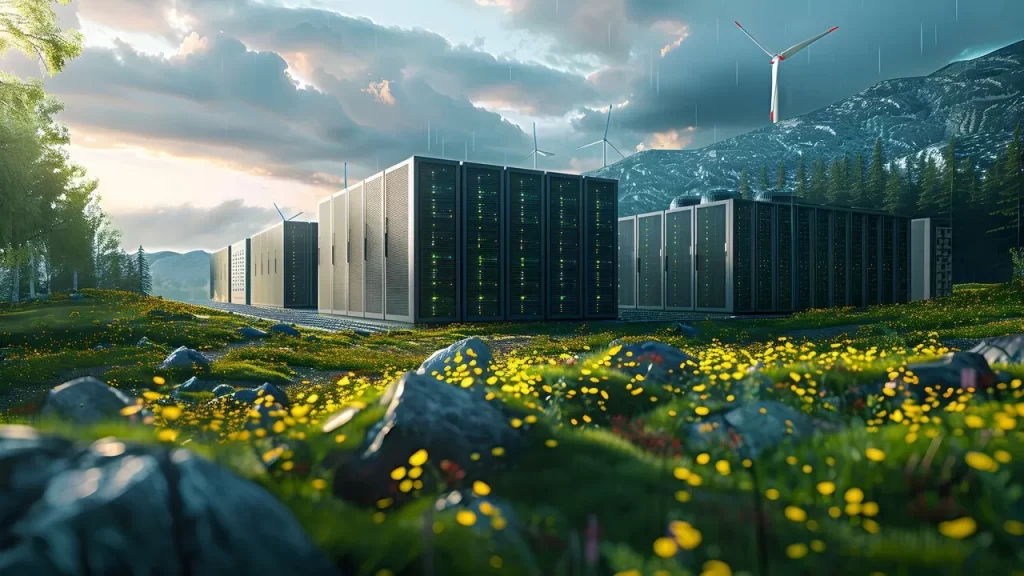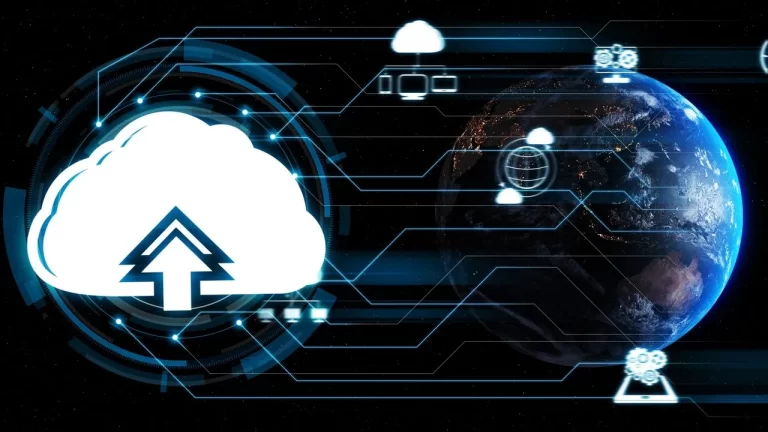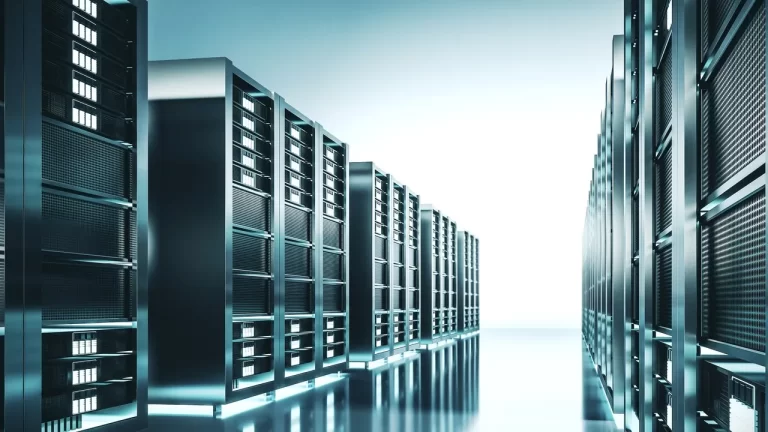Introduction: The Intersection of AI and Environmental Sustainability
To use natural resources sustainably is to help the planet stay livable for years to come. This means trying to prevent carbon pollution, waste management, and caring for nature. In addition, Artificial Intelligence (AI) is changing many industries by examining data, completing tasks automatically, and making quick decisions.
Since climate issues are getting stronger, AI is now being used in significant ways to protect the environment. From data centers automation software to AI-operated environmental research, this technology is helping us to monitor planet, reduce waste and use energy more easily.
AI in Climate Monitoring and Prediction
AI is expected to considerably improve our ability to understand and predict changes in the climate. AI technology uses data from satellites, weather stations and sensors to give live updates on climate changes. Doing this is very important for predicting difficult weather and preparing to manage disasters.
Tech giants like Microsoft, which is ramping up AI data center spending, are funding projects that use machine learning to model global warming scenarios and assess regional climate risks.
AI models are also used in container data center environments and HPC data centers (high-performance computing) to run simulations that would take traditional computers weeks to complete. These tools provide deep insight into sea level rise, melting ice, and climate-related migration patterns, helping policymakers act early and effectively.
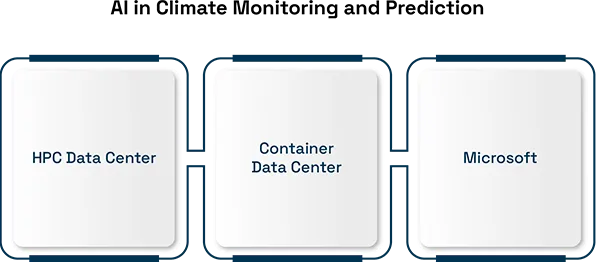
AI for Energy Efficiency and Smart Grids
Energy systems are a top area where AI provides instant environmental benefits. Recently, using AI in data centres has helped lower energy consumption, cut costs and support installing renewable energy sources. Google’s DeepMind company has used AI to reduce the cooling costs of their data centers by more than 40%. Their achievement proved that smart solutions in data centers can help make big infrastructure more sustainable.
In addition, data center automation tools are now being used to maintain temperature, power, and air flow in real time. Improved accuracy keeps unnecessary energy from being used and enables performance that doesn’t drop during busy moments. As well, AI helps to run liquid-cooling data center systems efficiently. They reduce the use of both electricity and water, as well as carbon use, when used instead of traditional air conditioning. In addition to running data centers, AI is making smart grids work better by predicting how much energy is needed and managing its supply accordingly. One of the reasons leading data center services providers invest so much in smart energy systems based on AI is to maintain strong performance during normal operations and help reduce environmental damage.
AI in Waste Management and Recycling
Waste management is another area where AI is driving real impact. Using AI-operated robotics and computer vision, the recycling centers can automatically sort waste materials, improve efficiency, and recovery rates.
Additionally, Informatica Power Centers and other automation devices help cloud platform cities collect and analyze data about waste trends, which indicate better policy decisions and reduce landfill use.
With the rise of colocation cloud and colocation facility deployments, AI is also helping streamline environmental compliance across distributed infrastructures. AI can analyze energy usage and waste output from different locations, ensuring sustainable operations.
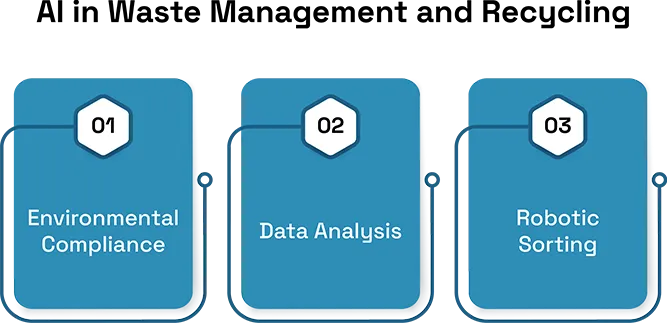
Challenges and Future Outlook: Balancing AI’s Impact on the Environment
While AI can help protect the environment, it can also lead to new difficulties focused on how much energy is being used. Using a lot of computing power to develop and train AI models frequently results in more electricity and carbon use. In addition, the infrastructure for AI, which includes big cloud computing services and data centres worldwide, demands constant cooling and care, using more energy. This growing demand has sparked discussions around infrastructure efficiency, particularly focusing on cloud colocation and the comparative advantages of colocation vs managed hosting vs cloud services. By sharing resources in optimized colocation facilities, companies can reduce redundancy, lower costs, and minimize their environmental footprint.
To address these issues, organizations are adopting innovative approaches and green computing strategies. One such solution is optimizing cloud colocation pricing to encourage energy-efficient usage models and load balancing. Companies are also investing in large data storage solutions designed with sustainability in mind, focusing on power-efficient storage arrays and intelligent data tiering. AI is increasingly used to manage data center firewall systems as well, ensuring not only security but also optimal system performance and reduced energy waste.
In addition, advanced data center automation software is helping IT departments manage their resource usage and power needs properly. There is an increasing trend in the industry to use container data centers because they can be built fast and set up in places that are powered by renewable energy. All these factors are helping shape Green AI, making sure that the focus is on results without harming the environment.
Conclusion
At the same time as making technology advancements, AI enables sustainability. AI is making it possible to conserve energy, predict upcoming difficulties with the environment and manage waste, all of which are helping us look after the earth.
With Microsoft boosting AI spending in data centers and eco-friendliness becoming vital, we expect AI will become more present in data centers, cloud services and colocation environments. By supporting us with data centers, cleaner energy and better recycling, AI is helping us to make the environment greener.
It is important to ensure that AI is used in ways that cause the best and minimal harm to the environment. Using proper policies, technologies, and awareness raised, AI can guide us towards making our planet more durable and smarter.

